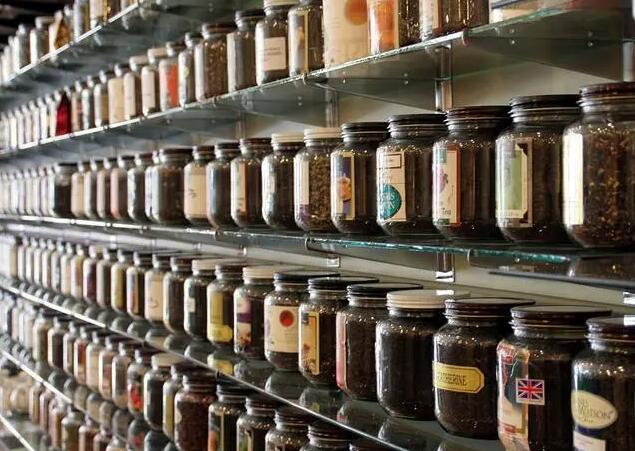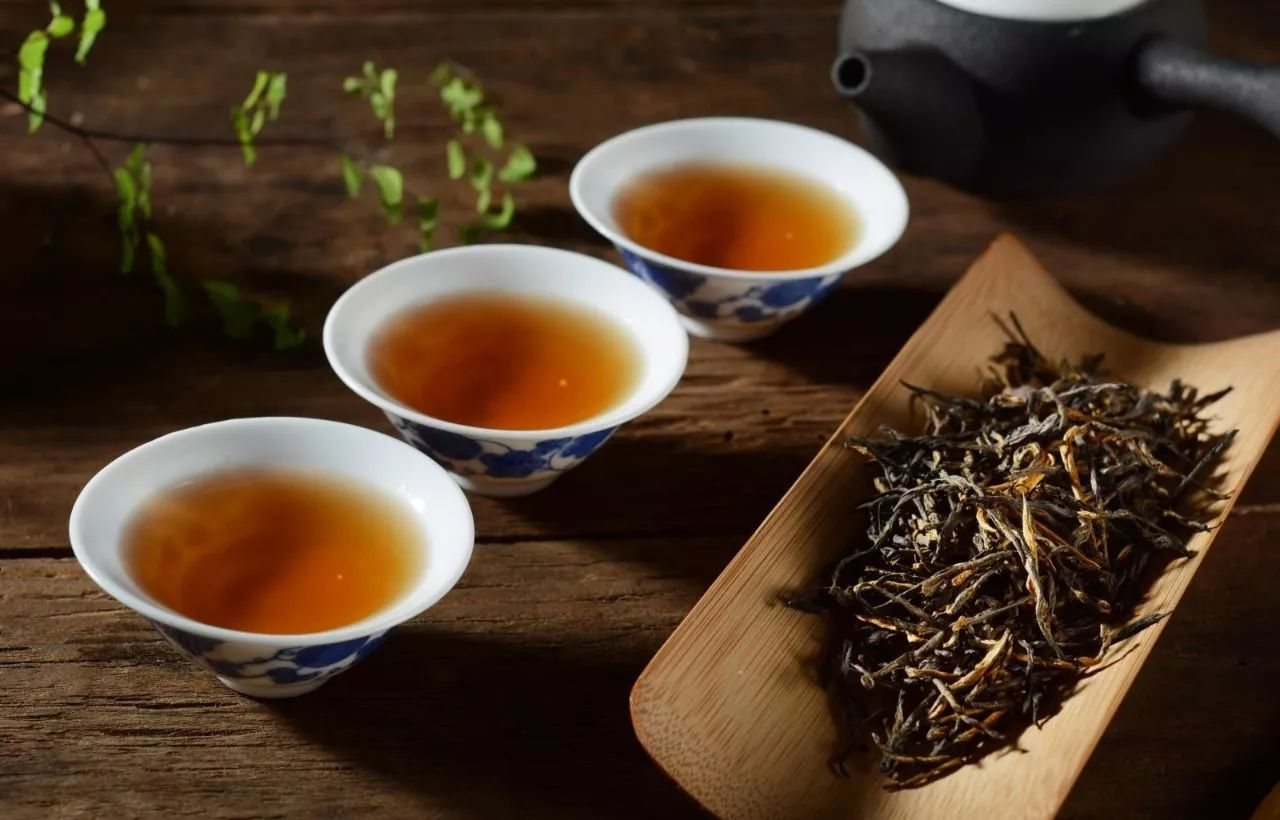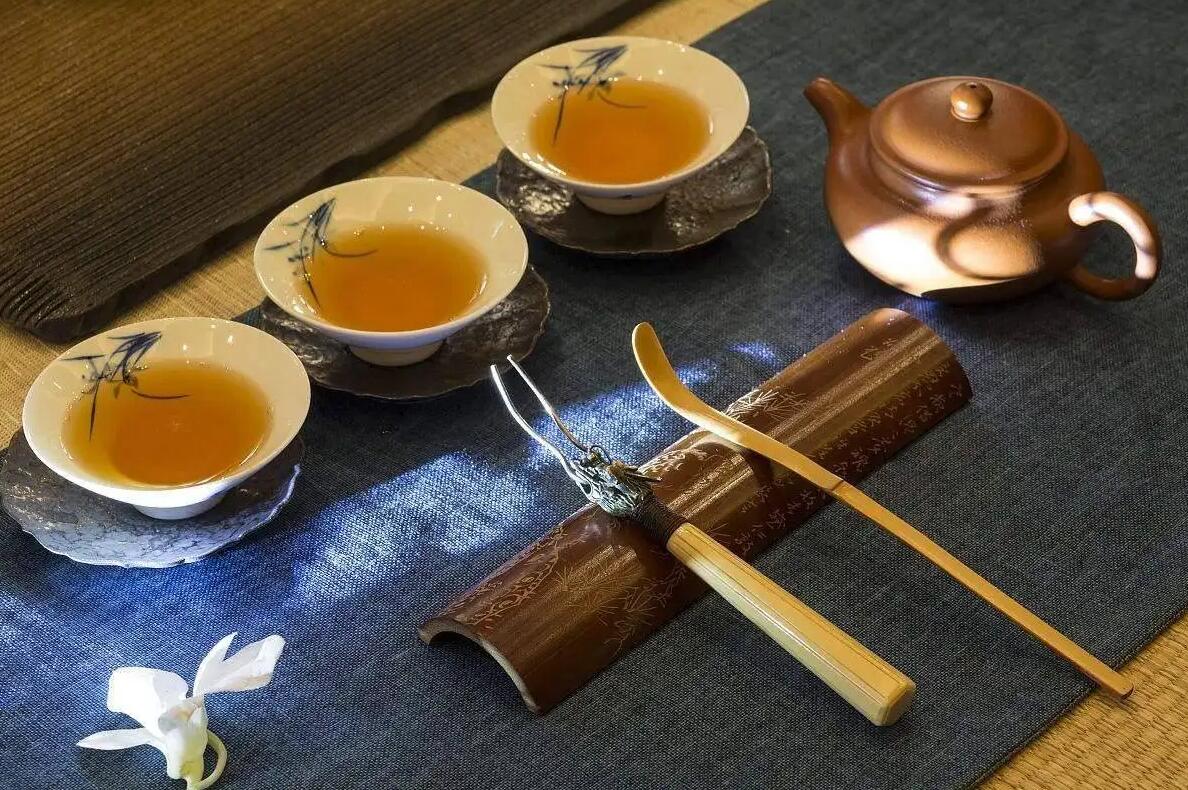In the Kaiyuan and Tianbao Years of the Tang Dynasty, the country was experiencing a most prosperous period. During this time, society was so positive and active that cross-culture communication happened frequently and the kaiserdom was steady. The main stream of the society was positive and confident. Lu Yu could grow from being an abandoned baby to become a sage of tea, benefiting from the nice social environment as well, It could be said that the excellent society provided the earth for the Chinese Tea Ceremony based on the harmonious philosophy upon which it grew.The Tang Dynasty is a period in which the Confucians, the Buddhists and the Taoists competed and developed with each other. So many talents emerged from those philosophical backgrounds that all had promoted the Chinese Tea Ceremony.
Confucianism
The Confucian scholars were the main force in developing and promoting the Tea Ceremony, the well known ones being: Yan Zhenqing, Huangpu Ran, Huangpu Zeng, Zhang Youxin, Bai Juyi, Feng Yan and Lu Tong.
Lu Tong (795A.D. ~ 835A.D.), his other name being Yu Chuanzi and having never been an official, became nearly addictive to tea. His outstanding devotion to the Tea Ceremony was remarked in the poem Words to Thank Suggestion Officer Xie Presenting New Tea. This poem is a classical work which has been called the poetical version of The Classic of Tea and has also been called the Song of Tea. It has been so frequently quoted and popular that nearly everyone has heard of it. The poem is as follows:
Awoken from the knocking on the door by someone when a sweet dream was made in a morning sleep.
I was told by Mr Meng's letter in the triple-sealed silk envelope. Like facing him when I opened the letter and touched by the hundreds of fresh tea leaves.
It is said you've visited the mountain in the New Year time, it is when the spring is about to come.
His Majesty must want to savour the Yangxian tea, that's why the flowers dare not blossom.
The new buds and fresh leaves have come out just before the spring time.
Picked those subtle, good but not luxurious leaves and immediately packed them.
Besides the Royals, there are celebrities, what could make you come and visit our crude home?
My bavin door is closed and no interruptions are made by annoying visitors, I enjoy the tea ceremony all by myself under the voile hat.
The steam from the tea bowl is like green clouds blowing in the wind,white foams staying on the surface of tea.
The first bowl moists my lips and throat.
The second drills away loneliness and dull The third makes a literal mood, which reminds me of the history behind the words.
The fourth makes you sweat, as if everything you suffered in life would be dispelled away through the pores.
The fifth makes sketches tight and relaxed.
The sixth leads to a fairy.
The seventh becomes relieved from any troubles and are able to purify your soul without drinking.
Penglai Mountains, where is it?
Yu Chuanzi, would like to lean on the wind to go.
The Immortals living in the mountain are in charge of the human world and wouldn't suffer the wind and rain.
But do they know that people in the human world are suffering at the moment?
Should I ask you for the people that would be able to rest finally?
What a romantic and beautiful poem about tea! It was written in simple tongue, and had a direct expression while its natural structure and smart idea described the great experience of savoring tea so successfully that it is not exaggerated nor over passionate in doing so. It revealed the philosophy of "harmony" and harmonious thought brilliantly. There are mainly four points noticeable about the spirit of the Tea Ceremony in his interpretation.
Firstly, "My bavin door is closed and no interruptions are made by annoying visitors. I enjoy the tea ceremony all by myself under the voile hat". Lu Tong used a very simple tongue but deeply described the atmosphere "access to the spirit by savoring alone" within the Chinese Tea Ceremony. A "bavin door" and not a "posh door" indicated that he was very poor but still tried to keep his independence. He divided his own spiritual world from the bally actual world; he enjoyed his sublime spiritual world in his small house behind the “bavin door".
The "Voile hat indicates that he could still have some sense of self esteem and confidence. It also suggests that he holds the tea ceremony in such high esteem that he has even prepared this point of courtesy even though he was in such a poor environment. The "Voile hat" became a classical image adored by people after this, like Ge Changgeng in the Song Dynasty, Wang Shipeng in the Song Dynasty and Wen Zhengming in the Ming Dynasty. It could be regarded that Lu Tong's poem is trying to explain how the Chinese scholars would "stay in lofty virtue even in poor conditions" throughout the Chinese Tea Ceremony.
Secondly, The steam from the tea bowl is like green clouds blowing in the wind, white foams staying on the surface of tea.
This is the Lu Tong's aesthetic view on the Chinese Tea Ceremony. The "green clouds" refers to the color of the tea; its 'white foams" refers to the bubbles on the surface of the water when pouring the tea. In those peoples' eyes, everything is so beautiful, and the other seven sentences of the poem's description interprets so well the experience of drinking tea. It was just because Lu Tong's world was so special that he could made his imagination so active and live through his tea savoring. Thirdly, the experience of the "seven bowls of tea".
This is a process that improves the self via development from having a form of material enjoyment to enjoying a spiritually pleasant stage, which is the most attractive bit of the whole poem. The "Seven Bowls of Tea" are well connected, smoothly and tastefully formed.
"The first bowl moists my lips and throat", which is just the physical action taken to quench the thirst. 'The second drives away loneliness and dull", which indicates the scholars solitary and depressed feelings towards the society during the times of feudalism.
"The third makes a literal mood", which reminds me of the history behind the words". This indicates more deeply that Lu Tong was a poor yet virtuous person, who led a comparatively poor life. When he was drinking tea with zisha tea set, he only thought of the knowledge he accumulated rather than the food in his tummy, which is amazing as his little tummy could accomodate so much knowledge. This became a matter of pride rather than a self comfort whilst in poverty for all the scholars afterwards. Lu Tong's third bowl of tea vividly depicts how "wealthy" actually those scholars were.
The fourth is the key one among the seven. The third one was a complaint of the scholars, but "The fourth bowl makes you slightly sweat, as if everything you suffered in life would be dispelled away through the pores". This looks quite at ease, but is actually more impressive than those who chose to be addicted to alcohol. Drinking tea is such new way to help those scholars that haven’t got the right opportunities to use their talents properly, which dispels away the things that makes them suffer things in the most effective way but does not do any harm to their health, which is such a wonderfull intelligence the Chinese Tea Ceremony possesses.
It is a sublimation from Lu Tong's fifth bowl to the seventh bowl, in which the seventh is the top for drinking tea. Thinking about it, what a feeling it is that you can forget everything, no need to worry about anything, feeling like you have the entire world all to yourself, becoming relieved from any trouble and able to purify your soul. No wonder Lu Tong had said in wonder "what a drink!"
Lu Tong's amazing "Seven Bowls of Tea" engendered a common resonance with people afterwards and provided a wonderful topic to them to discuss as well. For instance, Su Shi, Yang Wanli and Lu You in the Song Dynasty, Yelv Chucai and Yuan Mei in the Qing Dynasty. Even the Emperor Qian Long was really pleased with Lu Tong's "Seven Bowls of Tea". He mentioned frequently in his poems and paintings about Lu Tong's tea and even announced that he is a little better than Lu Tong in drinking tea.
Fourthly, have the others in mind and always help the others.
After the description of the experience of the “Seven Bowls of Tea", he wrote about his dreams of visiting the "Penglai Mountains, where is it? Yu Chuanzi, would like to lean on the wind to go”. The Penglai Mountain is a legendary mountain in the sea and Lu Tong regarded himself as an immortal demoted from heaven, believing that through drinking tea he could achieve the Taoism to go back to the Immortal Realm. Lu Tong’s wish revealed the Taoist, Confucian and Buddhist thoughts. He asked the rulers of the public in the end of his poem that could people have had a better life?
In Lu Tong's Song of Tea, he explained the special feelings and experiences of the tea drinking process through an aesthetic way within the form of poem.
special way in which he describes the seven bowls of tea interprets the spirit of the Chinese Tea Ceremony so well that it matches the thoughts exactly of what the Taoist, Confucian and Buddhist believed.
Buddhism
Jiao Ran, Ling Yi, Qi Ji, Cong Shen and Huai Hai are the people from the Buddhist realm who have made great devotions to the Chinese Tea Ceremony in its early stages.
Jiao Ran is a well known monk poet, the monk of tea, who produced a lot of works about tea of which the most famous one is the Song of Tea Drinking when Asking Ambassador Cui and Shi, it goes as follows:
The Yue people left me the Shanxi Tea, putting them into a gold pot.
The pure color of the china wares and tea just look tike the Immortals Sage's drinks.
The first sip helps me to remove confusion and have a good spirit.
The second sip clears my soul just like the rain washes away the dust.
The third sip enlightens me which means I don't worry about anything. This thing is so good but not many people know its temper, people drinking alcohol are in self-denial. Looking at Bi Zhou, Tao Qian and Cui Hou, do they have the full idea of the Tea Ceremony? Only Dan Qiu has the genuineness.
The "triple drinking" in Jiao Ran's poem produces the same level of satisfaction obtained from Lu Tong's "Seven Bowls of Tea". Describing how to “get the Taoism after triple drinking rather than worrying how to break the boredom" is a vivid description of his own experience and led to him being respected widely by people afterwards.
Taoism
Lv Yan, Shi Jianwu, Zhang Zhihe and Li Ye are the people from the Ta realm who were extremely devoted to the development of the Chinese Tea Ceremony.
Lv Yan, his other name being Dongbin, was one of the Eight Immortal He was qualified as a scholar and had been promoted to County Mayor but resigned from his position because of the Huang Chao rebellion and went to Zhongnan Mountain with his family. He met Han Zhongli after arriving in Changan city and followed him in his visits around the area. He left a few moving legends and tea poems, like the Tea Poem in Da Yun Temple.
It is called the excellent product that is "Jade Flower and One Spear Tea", with the monks' perfect Kungfu.The aroma of tea breezing from the low tea bowl, the tea water is brewing nicely as well Removing sleepiness and bringing the clarity to the body. I Just enjoy the natural environment but would not like to move to the city.
Shi Jianwu, also named Qi Zhenzi, was qualified in the Yuanhe Years of Emperor Mu Zong in the Tang Dynasty. He started his life of retirement by focusing on the study of Taoism because he was interested in the Taoism. He wrote more than a hundred poems entitled Poems about Life in Spare Time and a collection of work named The West Mountain. The Tea in Sichuan is written as follows:
The fresh Shu Tea is brewing in the Yue bowl, the aroma arising from it when stiring the tea. The hill monk asked me what it is tike,I dare not say it is an immortal water because of his argument.
From the poems above, we could see that monks from both the Buddhist and the Taoist faiths are sitting together to talk about tea and philosophy. The intercommunication of all the Taoist, Confucian and Buddhist thoughts is one of the reasons why the greatest developments happened during the Tang Dynasty.
Emperors and Kings in Feudal Times
The number of Emperors. Kings and Generals is not large but the power in their hands be. They had a great imapact on the the development of tea culture in the Tang Dynasty both from the aspect of speed and direction.
Like Emperor Xuanzong (685A.D. ~ 762A.D.), also known Emperor Tang Ming, brought about a prosperous society during his governance, this period being called the "Kaiyuan Reformation" or "The Prosperous Tang".
"The Emperor Tang Ming was competing tea with Lady Mei. He told the others in a fummy mood that, "She is really good, playing the white jade flute, performing the goose dance, amazing to everyone and won again in the tea competition.' Lady Mei said,'How could I be compared to Your Majesty, while you manage the country in such a balanced way?" The Emperor was really pleased."
Emperor Tang Xuanzong created the first ever "Tea competition" in the Palace, which influenced folk entertainment way after this time and led to being developed further in the Song Dynasty later as well.
Li Yu, Emperor Tang Daizong (728A.D. ~ 799A.D.). established the Royal Tea Institute in Changxing Guzhu Mountain, Zhejiang province in the year of 770 A.D., which was the first Chinese Royal Tea Factory. There were 30,000 workers, over 1,000 technicians and over 100 kilns. The foundation of that institute gave huge significance to the development of the technology within tea planting and manufacturing.
Again, in 1978, the excavated cultural relics from the Famen Temple in Shaanxi province contained a series of gold covered silver tea utensils, which was an oblation from the Emperor Tang Xizong to the Buddha. From the excavated stele list of the oblations, those utensils comprise of a tea trough, tea roller, tea net and spoons, seven of them in total, which weigh 80 liang (4 kilograms).
There were also some salt boxes, baskets, tea bowls and saucers.
The Royal Tea Utensils mentioned above all are of good quality, beautifully shaped and subtly made. Those precious national treasures represent the advanced development of the Chinese Tea Ceremony in the Royal Palace in the Tang Dynasty, which also are reflected in the poems between Emperor Tang Dezong and the talented lady called Bao Junhui.
The Tea Party in the East Marque
The morning sunshine upon the window, we have the tea party in the East marque.
The further view of the city looks like in the mountains, the musical sounds being like water.
The new buds are just about to come out and the plants are going to have new flowers.
There is endless fun here but more fascinating is the clear Tuanshan Tea.
In society during the times of Feudalism, "The Upper Classes fashion affects the people assuredly". Nearly all the Emperors in the Tang Dynasty enjoyed drinking tea, which had a big influence on the tea drinking nationally, when tea was firstly regarded as being a "National Beverage".



